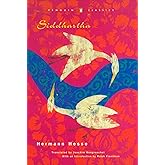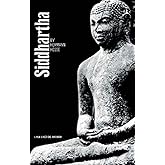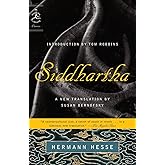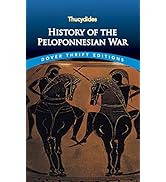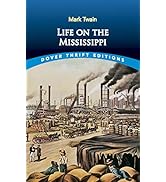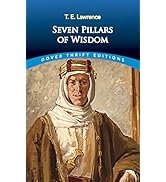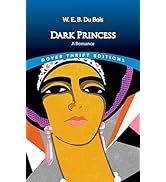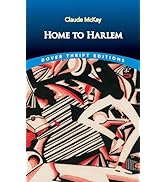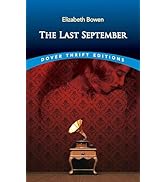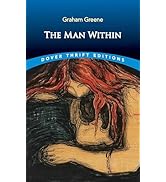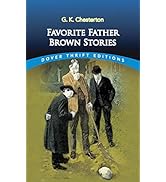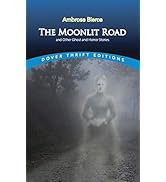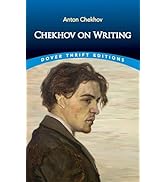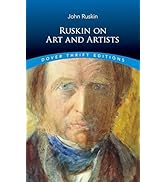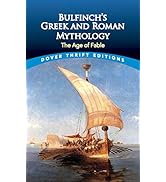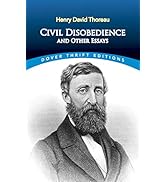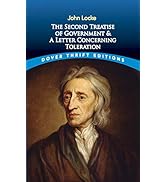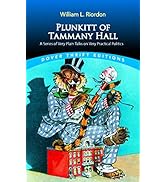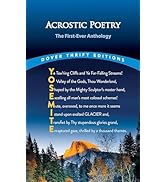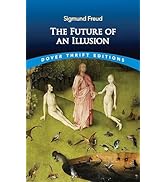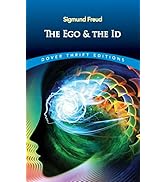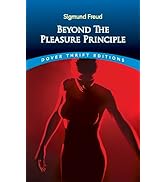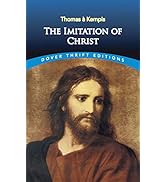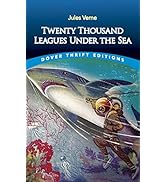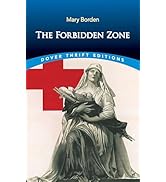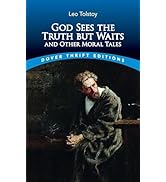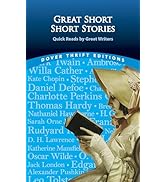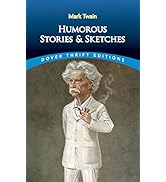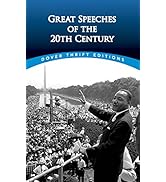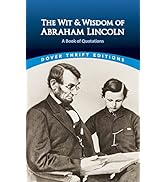
Amazon Prime Free Trial
FREE Delivery is available to Prime members. To join, select "Try Amazon Prime and start saving today with FREE Delivery" below the Add to Cart button and confirm your Prime free trial.
Amazon Prime members enjoy:- Cardmembers earn 5% Back at Amazon.com with a Prime Credit Card.
- Unlimited FREE Prime delivery
- Streaming of thousands of movies and TV shows with limited ads on Prime Video.
- A Kindle book to borrow for free each month - with no due dates
- Listen to over 2 million songs and hundreds of playlists
Important: Your credit card will NOT be charged when you start your free trial or if you cancel during the trial period. If you're happy with Amazon Prime, do nothing. At the end of the free trial, your membership will automatically upgrade to a monthly membership.

Download the free Kindle app and start reading Kindle books instantly on your smartphone, tablet, or computer - no Kindle device required.
Read instantly on your browser with Kindle for Web.
Using your mobile phone camera - scan the code below and download the Kindle app.



 Audible sample
Audible sample Siddhartha (Dover Thrift Editions: Classic Novels) Paperback – December 23, 1998
Purchase options and add-ons
This classic novel of self-discovery has inspired generations of seekers. With parallels to the enlightenment of the historical Buddha, Siddhārtha Gautama, Hesse's Siddhartha is the story of a young Indian Brahmin's quest for the ultimate reality—nirvana. His quest takes him from the extremes of indulgent sensuality to the rigors of asceticism and self-denial. After encounters with wandering ascetics, the famous Buddha Gautama, known as the Enlightened One, and his Buddhist monks, a courtesan named Kamala, and a ferryman, he learns that wisdom cannot be taught — it must come from one's own experience and inner struggle.
Steeped in the tenets of psychoanalysis, Eastern philosophy, and mysticism, Siddhartha presents a strikingly original view of man and culture, and the arduous process of self-discovery that leads to reconciliation, harmony, and peace.
- Siddhartha Includes a glossary of Indian terms.
- Hermann Hesse uses Pali and Sanskrit interchangeably.
- Hesse incorporates the teachings of Hinduism in Siddhartha's life choices as a student, householder, forest hermit, and wandering ascetic.
- Nominated as one of America’s best-loved novels by PBS’s The Great American Read.
- Translated by Stanley Appelbaum.
- Print length112 pages
- LanguageEnglish
- PublisherDover Publications
- Publication dateDecember 23, 1998
- Reading age14 years and up
- Dimensions4.9 x 0.3 x 7.8 inches
- ISBN-100486406539
- ISBN-13978-0486406534
- Lexile measure1010L
Book recommendations, author interviews, editors' picks, and more. Read it now
Frequently bought together

Customers who viewed this item also viewed
From the brand

-

Debuting in 1990, the Thrift Editions library of classic literature is a top choice for teachers, students, librarians, and recreational readers around the world. Dover’s longstanding mission of exceptional value has consistently offered excellence in classic fiction, nonfiction, plays, and poetry.
Dover Thrift Editions are low priced, compact (5"x8"), complete and unabridged.
-
Are there any collections of stories or poetry in the Dover Thrift Editions?
In addition to single title books, Dover offers books of anthologies in fiction, non-fiction and poetry. Check out our Thrift Editions of short stories, literary collections, poetry, gothic and horror, SciFi/Fantasy, crime/mystery/thrillers and more. Happy Reading!
What formats are the Thrift Editions available in?
All are available in an easy to carry paperback version and most titles are available for the Kindle e-reader.
-
American History/History
-
Biography and Autobiography
-
Black History
-
Classic Novels
-
Crime, Mystery and Thrillers
-
Gothic and Horror
-
Literary Collections
-
Philosophy
-
Plays
-

-
Political Science
-
Poetry
-
Psychology
-
Religion
-
SciFi and Fantasy
-
Short Stories
-
Speeches and Quotations
From the Publisher
A strikingly original view of man and culture and the arduous process of self-discovery, reconciliation, harmony, and peace

Blending Eastern mysticism and psychoanalysis
Steeped in the tenets of psychoanalysis, Eastern philosophy, and mysticism, Siddhartha presents a strikingly original view of man and culture, and the arduous process of self-discovery that leads to reconciliation, harmony, and peace.
- Siddhartha Includes a glossary of Indian terms.
- Hermann Hesse uses Pali and Sanskrit interchangeably.
- Hesse incorporates the teachings of Hinduism in Siddhartha's life choices as a student, householder, forest hermit, and wandering ascetic.
- Nominated as one of America’s best-loved novels by PBS’s The Great American Read.
- Translated by Stanley Appelbaum.
With parallels to the enlightenment of the historical Buddha, Siddhārtha Gautama, Hesse's Siddhartha is the story of a young Indian Brahmin's quest for the ultimate reality—nirvana. His quest takes him from the extremes of indulgent sensuality to the rigors of asceticism and self-denial. After encounters with wandering ascetics, the famous Buddha Gautama, known as the Enlightened One, and his Buddhist monks, a courtesan named Kamala, and a ferryman, he learns that wisdom cannot be taught — it must come from one's own experience and inner struggle.

Product details
- Publisher : Dover Publications; Advance Review Copy edition (December 23, 1998)
- Language : English
- Paperback : 112 pages
- ISBN-10 : 0486406539
- ISBN-13 : 978-0486406534
- Reading age : 14 years and up
- Lexile measure : 1010L
- Item Weight : 3.21 ounces
- Dimensions : 4.9 x 0.3 x 7.8 inches
- Best Sellers Rank: #106,344 in Books (See Top 100 in Books)
- #304 in Metaphysical & Visionary Fiction (Books)
- #1,544 in Psychological Fiction (Books)
- #3,167 in Classic Literature & Fiction
- Customer Reviews:
About the author

Hermann Hesse (1877-1962) was born in Germany and later became a citizen of Switzerland. As a Western man profoundly affected by the mysticism of Eastern thought, he wrote many novels, stories, and essays that bear a vital spiritual force that has captured the imagination and loyalty of many generations of readers. In 1946, he won the Nobel Prize for Literature for The Glass Bead Game.
Photo by unknown [Dutch National Archives, The Hague, Fotocollectie Algemeen Nederlands Persbureau (ANEFO), 1945-1989 / Public Domain] [CC BY-SA 3.0 nl (http://creativecommons.org/licenses/by-sa/3.0/nl/deed.en)], via Wikimedia Commons.
Customer reviews
Customer Reviews, including Product Star Ratings help customers to learn more about the product and decide whether it is the right product for them.
To calculate the overall star rating and percentage breakdown by star, we don’t use a simple average. Instead, our system considers things like how recent a review is and if the reviewer bought the item on Amazon. It also analyzed reviews to verify trustworthiness.
Learn more how customers reviews work on AmazonCustomers say
Customers consider this book one of the top five books of a lifetime, praising its deep philosophical nature and surprising sophistication. They appreciate its readability, with one customer noting it reads like an old mythic tale. Customers also find the book offers great value for money.
AI-generated from the text of customer reviews
Select to learn more
Customers find the book highly readable, with many considering it one of the top five books of a lifetime. One customer notes that it reads like an old mythic tale.
"...book many more times in the future, while dense it really was a pleasure to read." Read more
"...and maybe even prefer it to the "Blue Book." The translator understands Buddhism and if you also are aware of Buddhism in a non-superficial..." Read more
"...I didn’t notice any typos. But a table of contents is a very basic and necessary thing, even in a skinny book...." Read more
"...His name was Siddhartha; he became the Buddha. Wonderful little book that traces Siddhartha's abandoning his pregnant wife and his wealthy family..." Read more
Customers praise the book's story quality, describing it as a deeply philosophical novel that is surprisingly sophisticated and among the most significant pieces of literature. One customer notes it as a beautiful story of self-discovery, while another mentions how it makes readers contemplate their own journey.
"...Some translations are really poor, while others capture the essence of the novel beautifully and gracefully, like a net catches a butterfly before..." Read more
"...There are lots of philosophical concepts to unpack if you want to read it that way. The prose are a bit overdone...." Read more
"...I could only digest a couple of pages a night! It is full of though-provoking prose that applies to many aspects of life, and I really enjoyed..." Read more
"...The introduction is a real intro by the new translator so it is meaningful and not just a few paragraphs of biographical material that is typical..." Read more
Customers find the book offers great value for money.
"...They are really very high quality for a low price, but sometimes in order to keep costs down they use very old or clunky translations...." Read more
"...physical quality of this book is great for this price - less expensive than a magazine!..." Read more
"...from my students but I am giving it 5 stars for this version due to price and a lower reading level." Read more
"...The price on this copy was great...." Read more
Reviews with images
Yup. You NEED this one.
Top reviews from the United States
There was a problem filtering reviews. Please reload the page.
- Reviewed in the United States on December 19, 2011I just finished reading Siddhartha, and I can safely say without a shadow of a doubt, that it is now my favourite book. It's simply amazing that this was published in 1922, it is a timeless breath of simplicity and creativity. Herman Hesse was known for writing semi autobiographical novels, and this one is no exception; the character Siddhartha is even recognised for his writing ability at one stage of the novel. Siddhartha is heavily influenced by Hesse's close relationship with the great Swisse psychologist Carl Jung, and it is a treat to experience the archetypal imagery that Hesse manages to bring to life with sheer mastery. The novel reads like an old mythic tale, told with simple descriptive prose, and playful dialogue: the characters even refer to themselves in the third person! While reading Siddhartha, I couldn't help but picture the novel's world as being hand drawn, like the old drawings of the Buddha and the Hindu and Buddhist mythologies of old. The book is divided into three parts, which symbolically follow Siddhartha's birth, death, and rebirth. The Siddhartha in the novel is not related to the Siddhartha Gautama (Buddha), but he exists in the same time as him, and the two cross paths in the book. Even though they are unrelated, and the story hasn't much to do with the Buddha, the novel implies that the Buddha exists everywhere and in everyone and is merely a representation of the enlightenment available to anyone, at any moment. Whether it be at the moment of physical death, sickness, wealth, sadness, or simply holding and looking at a rock, one is capable of `waking up' and seeing the inter connectedness of everything.
I won't elaborate any further on the book, I would hate to subtract any of your enjoyment out of reading it yourself, and if you haven't, I urge you to. One important thing to consider before reading it however, (it is a fairly short read - roughly 80 pages) is the translation. The original was written in German, so the translation of the book can make or break it. Some translations are really poor, while others capture the essence of the novel beautifully and gracefully, like a net catches a butterfly before releasing it into the wind. Below is a extract of the book, spanning all (or at least most) of the English translations available to you, to help you choose the right version for you. I've ordered them in order of best to worst, though you might have a different opinion to me.
SIDDHARTHA ENGLISH TRANSLATION COMPARISON:
Dover Thrift, introduction, translation and glossary of Indian terms by Stanley Appelbaum (1998)
Instructed by the samana elder, Siddhartha practiced denial of self; he practiced concentration in accordance with new samana rules. A heron flew over the bamboo forest - and Siddhartha absorbed the heron into his soul; he flew over forest and mountain, he was the heron, he ate fish, he hungered with a heron's hunger, he spoke with a heron's croaking, he died a heron's death. A dead jackal lay on the sandy riverbank, and Siddhartha's soul slipped into the carcass; he was a dead jackal, he lay on the sand, he swelled up, stank, rotted, was torn apart by hyenas, was skinned by vultures, became a skeleton, turned to dust, blew away into the fields. And Siddhartha's soul returned; it had died, it had rotted, it had fallen into dust, it had tasted the dismal intoxication of the cycle of existences; filled with fresh thirst, like a hunter it was awaiting the gap through which it might escape the cycle, where causation would come to an end, where sorrowless eternity began. He mortified his senses, he mortified his power to remember, he stole out of his ego and into a thousand unfamiliar forms of creation; he was an animal, he was a carcass, he was stone, he was wood, he was water, and each time, upon awakening, he found himself again; the sun or the moon was shining; he was himself once again, he was moving through the cycle; he felt thirst, overcame his thirst, felt fresh thirst.
Modern Library, a translation by Susan Bernofsky, foreword by Tom Robbins, translator's preface (2006)
Instructed by the eldest of the Samanas, Siddhartha practiced the eradication of ego, practiced samadhi according to new Samana rules. A heron flew over the bamboo forest--and Siddhartha received the heron into his soul, flew over forests and mountains, was heron, ate fish, felt the pangs of heron hunger, spoke in heron squawks, died heron death. A dead jackal lay on the sandy bank, and Siddhartha's soul slipped into the corpse, was dead jackal, lay on the beach, grew bloated, stank, decayed, was torn apart by hyenas and flayed by vultures, became a skeleton, became dust, blew into the fields. And Siddhartha's soul returned, it had died, had decayed, become dust, it had tasted the bleak euphoria of the cyclical journey, and then, freshly thirsty, it waited crouching like a hunter for the gap in the cycle where escape was possible, where the end of causality began, an eternity free of sorrow. He killed off his senses, he killed off his memory, he slipped from his Self to enter a thousand new shapes, was animal, was cadaver, was stone, was wood, was water, and each time he awakened he found himself once more, the sun would be shining, or else the moon, and he was once more a Self oscillating in the cycle, he felt thirst, overcame the thirst, felt new thirst.
Shambhala Classics, a translation by Sherab Chödzin Kohn, introduction by Paul W. Morris, translator's preface (1998).
Taught by the eldest shramana, Siddhartha practiced self-abnegation, practiced meditative absorption according to the new instructions of the shramanas. A heron flew over the bamboo grove, and Siddhartha became one with the heron in his mind, flew over forest and mountain, became a heron, ate fish, hungered with a heron's hunger, spoke a heron's croaking languages, died a heron's death. There was a dead jackal lying on the sandy bank, and Siddhartha's mind slipped into the carcass, became a dead jackal, lay on the shore, swelled up, stank, rotted, was torn to pieces by hyenas, flayed by vultures, became a skeleton, became dust, blew about in the fields. And Siddhartha's mind returned, dead, rotten, reduced to dust, having tasted the dark drunkenness of the cycle of existence. With a new craving it lay in wait like a hunter for the gap where that cycle could be escaped, where the end of causation could begin, eternity without suffering. He slipped out of his ego into a thousand alien forms, became a beast, carrion, became stone, wood, water--yet each time when he awoke he found himself there again. By sunshine or by moonlight, he was once again ego, was pressed back into the cycle, felt craving, overcame the craving, felt craving anew.
Bantam Books, a translation by Hilda Rosner (1951). This translation is also available in a number of different editions from other publishers.
Instructed by the eldest of the Samanas, Siddhartha practiced self-denial and meditation according to the Samana rules. A heron flew over the bamboo wood and Siddhartha took the heron into his soul, flew over forest and mountains, became a heron, ate fishes, suffered heron hunger, used heron language, died a heron's death. A dead jackal lay on the sandy shore and Siddhartha's soul slipped into its corpse; he became a dead jackal, lay on the shore, swelled, stank, decayed, was dismembered by hyenas, was picked at by vultures, became a skeleton, became dust, mingled with the atmosphere. And Siddhartha's soul returned, died, decayed, turned into dust, experienced the troubled course of the life cycle. He waited with new thirst like a hunter at a chasm where the life cycle ends, where there is an end to causes, where painless eternity begins. He killed his senses, he killed his memory, he slipped out of his Self in a thousand different forms. He was animal, carcass, stone, wood, water, and each time he reawakened. The sun or moon shone, he was again Self, swung into the life cycle, felt thirst, conquered thirst, felt new thirst.
Penguin, a translation by Joachim Neugroschel, introduction by Ralph Freedman, translator's note (2002).
Taught by the eldest of the samanas, Siddhartha practiced unselfing, practiced meditation, according to the samana rules. A heron flew over the bamboo forest--and Siddhartha took the heron into his soul, flew over forests and mountains, was a heron, ate fish, hungered heron hunger, spoke heron croaking, died heron death. A dead jackal lay on the sandy bank, and Siddhartha's soul slipped into the cadaver, was a dead jackal, lay on the shore, swelled, stank, rotted, was shredded by hyenas, was skinned by vultures, became a skeleton, became dust, wafted into the fields. And Siddhartha's soul returned, was dead, was rotted, was dispersed, had tasted the dismal drunkenness of the cycle of life, waited in new thirst like a hunter, waited for the gap through which he could escape the cycle, where the end of causes came, where painless eternity began. He killed his senses, he killed his memory, he slipped from his ego into a thousand different formations. He was animal, was carcass, was rock, was wood, was water, and he always found himself again upon awakening. Sun was shining or moon, he was self again, swinging in the cycle, felt thirst, overcame thirst, felt new thirst.
Barnes & Noble Classics, a translation by Rika Lesser, introduction and notes by Robert A.F. Thurman (2007)
Instructed by the eldest of the shramanas, Siddhartha practiced moving away from the self, practiced meditation, following new rules, the shramanas' rules. A heron flew over the bamboo forest--and Siddhartha took the heron into his soul, flew over the forest and the mountains, was the heron, gobbled fish, hungered as a heron hungers, spoke heron croak, died the death of a heron. A dead jackal lay on the sandy shore, and Siddhartha's soul slid inside its corpse, became the dead jackal, lay on the strand, swelled up, stank, putrefied, was dismembered by the hyenas, skinned by vultures, became bones, dust, blew in open country. And Siddhartha's soul died, decayed, turned to dust, tasted the muddy rush of the cycle, waiting in new thirst like a hunter for the gap where the cycle would be escaped, where the end of causes, where eternity free of suffering would begin. He mortified his senses, he slew his memory, he slid out of his I into a thousand alien shapes, became beast, carrion, stone, wood, water, and found himself every time awakening again, in the light of the sun or the moon, again he was I, whirling around in the round, he felt thirst, conquered thirst, felt thirst anew.
- Reviewed in the United States on May 31, 2024Good read if you want a very westernized version of an Eastern philosophical experience. It's hard not to see this as Hesse's attempt at a Zarathustra. In that sense, it falls well short of Neitzsche's masterpiece. There are lots of philosophical concepts to unpack if you want to read it that way. The prose are a bit overdone. I'd recommend Steppenwolfe for anyone interested in Hesse before this, but I enjoyed it.
- Reviewed in the United States on February 24, 2015For a short book, it took me weeks to get through. I could only digest a couple of pages a night! It is full of though-provoking prose that applies to many aspects of life, and I really enjoyed it.
I see myself reading this book many more times in the future, while dense it really was a pleasure to read.
- Reviewed in the United States on October 31, 2015Excellent new translation. If you are like me, with the classics in particular (Iliad, Odyssey, Aeneid, Gilgamesh, Beowulf, etc.), it is always awesome to have a new translation. Even if it doesn't work out, at least it moves things forward and refreshes interest in the timeless works.
For this text, I was surprised how well the new translation is. I love the Thrift editions and have most of them. They are really very high quality for a low price, but sometimes in order to keep costs down they use very old or clunky translations. This translation is completely new. If you are used to the "Blue Book" that is the classic for Siddhartha and you like this work by Hesse in general, I am confident you will at the very least appreciate this translation and maybe even prefer it to the "Blue Book." The translator understands Buddhism and if you also are aware of Buddhism in a non-superficial sense I believe that you will appreciate the care used in translating Siddhartha's spiritual journey as it is infused with the translator's understanding of the religious/philosophical system.
Other than that, the book cover is beautiful and the feel of the book is great. It makes you really want to consume the work. The introduction is a real intro by the new translator so it is meaningful and not just a few paragraphs of biographical material that is typical with the thrift editions. Overall, well pleased!
- Reviewed in the United States on April 12, 2025Meh. I guess it's good if you're looking to explore new ideas in a novel way. Not for me. I just couldn't get into the story.
Top reviews from other countries
-
 Hugo J.Reviewed in Mexico on February 9, 2021
Hugo J.Reviewed in Mexico on February 9, 20215.0 out of 5 stars BUEN LIBRO Y FACIL DE LEER
LO RECOMIENDO TOTALMENTE










